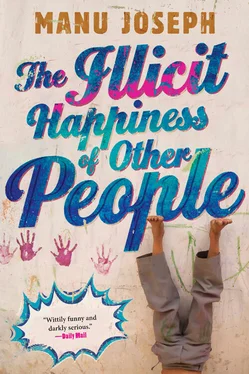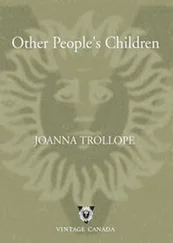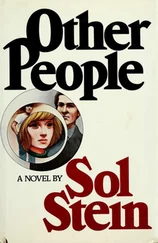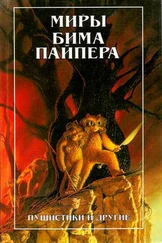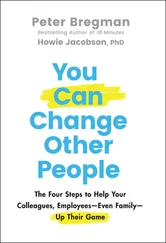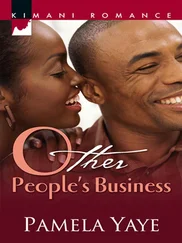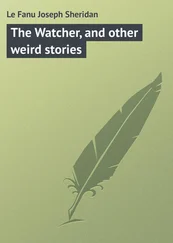‘I am here,’ Ousep says. Sai’s head is already turned away, so he cranes his neck and looks beyond the horizon to stress that he is not interested in talking. ‘I hope you’ve changed your mind, Sai. Hope you’ve something more to tell me.’
This is how it goes every morning. Ousep talking, Sai silent. ‘I hate doing this, Sai, I hate bothering you like this, but I have no choice. I know there is something you’re not telling me.’
Sai’s chest heaves, he shuffles a bit and makes an exaggerated gesture of putting his palm over his eyes and trying to divine the number of an approaching bus. But it appears that it is not his bus, and he makes another dramatic face of great dismay. The city is full of terrible actors. That is what historians never say about Madras, it is filled with hams. The bus arrives fully packed, spilling a swarm of tiny starved young men who would not have made it this far in life if it had not been for all those free vaccinations. Dozens of them, some in trousers, many in lungis, are still dangling from the doors and windows. Two cops in plain clothes who have been waiting on the road take the sticks they had hidden in the back of their shirts, and start hitting the legs of the danglers, who now try to surge into the bus, screaming and laughing.
The commotion passes and there is reasonable quiet for the moment. Just speeding vehicles, and their horns. ‘I heard something yesterday,’ Ousep says. ‘You, Unni and Somen Pillai went to meet a nun who had taken a lifelong vow of silence. You didn’t tell me about this. See, this is what I mean. There are some things you didn’t tell me. Why, Sai? Why didn’t you tell me?’ Sai remains silent, as expected, and cranes his neck again. ‘Why would three boys go to meet a nun who does not speak?’ Ousep asks. ‘Say something, talk to me. I am meeting her tomorrow. What must I ask her?’
Sai’s stoic silence is a clever strategy. It does frustrate Ousep and make him feel silly. Or is Ousep imagining things? Maybe it is not a strategy, maybe the boy has truly told him everything that he thought was significant.
‘OK, don’t tell me anything, Sai. Just tell me how I can meet Somen Pillai. Take me to Somen Pillai. That’s all I ask. Somen Pillai.’
A look of immense relief comes over Sai. His bus has finally arrived. He looks without affection at Ousep and says what he has said before. ‘Why have you started probing again? What happened?’
‘Nothing has happened.’
‘People say you’ve found something. That’s why you’re hounding all his classmates again.’
‘They don’t know what they are talking about.’
‘I hear you have been trying to meet everyone.’
‘That’s true.’
‘Why are you doing this now? Why now? After three years. Why?’
Why now? Why now? That is what people ask Ousep every day.
‘Just give up,’ Sai says. ‘Get on with your life. That’s all I can say.’
Sai wades through the layers of damp bodies on the footboard of the bus, and makes his way in. He will squeeze himself safely between the men, feel his wallet at all times, and take great care to ensure that he does not brush against the women because he is precisely the sort of harmless fruit the ladies in the bus wait to slap and punch and stab with the sharp end of their floral umbrellas for the times when they are touched and poked, the elastic of their underwear pulled and released like a catapult by the flying squads of college boys who board the packed buses just to do that.
There is an untitled comic by Unni about one of these squads, which shows how they do what they do, and how much they enjoy it. The comic ends in the distant future of the five boys of the gang. All of them are respectable men who go home every evening to a loving traditional wife and two adoring children.
After Sai’s bus leaves, only a young woman and her little daughter are left at the bus stop. The woman and the girl have yellow faces from a turmeric treatment the previous night to make them fairer. The daughter is playing a private game. She pats her mother’s buttocks and runs away giggling, returns to pat again and run a few feet. She keeps doing it. The mother stands looking in one direction, hoping to see her bus. A man appears and stands behind the woman. The daughter stops playing the game now and begins to toy with a chocolate wrapper she has found on the ground. The man gently pats the woman’s back. She thinks it is her daughter, so she stands there without any expression. The man pats her again and looks away. He pats her at short intervals, and finally he lets his hand stay on her. Ousep stares at the scene without opinion, without outrage. A man’s hand on a woman’s arse and the woman, yawning now, looking at the world go by.
It is a moment that has no meaning. It is as if the tired charade of human life with its great pursuits and history and wounds and deep convictions has collapsed, and the world has been suddenly revealed as a place that has no point, that does not need the hypothesis of meaning to explain its existence.
IT IS A MISFORTUNE to be in the presence of a writer, even a failed writer, to be seen by him, be his passing study and remain in his corrupt memory. It is like the insult of a corpse on the road by a war photographer. Ousep wonders whether cartoonists are writers, he hopes they have different minds. He is with a lot of them and all of them are looking at him. What do they see? A man with silver-and-black hair that falls in curls at his nape, and a journalistic French beard. Surely a creative type, like them. Or do they see more than that, do they see a man illuminated by failure, a tragic father who is still probing the life of his son? Should he try to achieve a feeble stoop and somewhat moist eyes, look weak and dependent, make them careless about what they choose to say?
The Society of Amateur Cartoonists meets once a month in the Madras Christian College, in a portion of a long corridor. The far end of the sunlit corridor frames a huddle of ancient trees that pretends to hide a thick forest within its darkness. Usually, not more than twenty cartoonists attend these meetings but today, because word had spread that Unni Chacko’s father wanted to see them, there are nearly fifty cartoonists of various ages, all of them sitting in a crescent on the ground. Ousep is among them, he has refused the offer of a foldable chair. In the small crowd, there are five identical bald Buddhist monks in saffron robes, who look like giant infants. And just two girls in jeans and T-shirt who survey the others with the amused look of a newsreader who is finished with political news and is about to announce that the lioness in the Vandalur Zoo has delivered four healthy cubs.
Ousep did not know that his son was a member of such a group until a few days ago when someone mentioned it to him in passing. Unni was in the society for just a few months, he was among the youngest they have ever admitted, but people here remember him in a way that suggests he was important. When Ousep walked into the gathering, everyone stood up and clapped. After the fuss ended and Ousep did not have to nod graciously any more, the president of the society formally introduced him as ‘chief reporter of the UNI’.
Ousep cannot deny that, but it reminds him that he would never be introduced as the greatest writer Kerala has ever produced. When he was young, everybody said that was his destiny. But then the years passed and somehow he did not write his great novel. He decayed in a state of gentle happiness. Or is it just that he did not truly believe he could write a brilliant novel? Many years ago, when Mariamma was still interested in him, she had told him, while sticking a stamp on an envelope, ‘Strong people write bad stories.’ Why has the comment stayed with him? Was she calling him strong or was it a cruel review of his short stories?
Читать дальше
